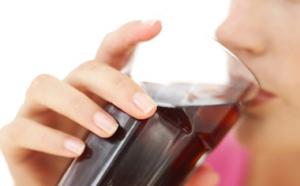Soda consumption has increased significantly over the past few years among Americans. In 2000, 15 billion gallons of this type of drink were sold in the USA (Washington Post, February 27, 2001). Equally, the risk of bone fracture has increased 40% in women, and 13% in men. A link between cola-type soda consumption and a decrease in bone density has been identified, so we advise you to think twice before having these drinks this summer.
Did you know that excessive soda consumption can stain your teeth, lead to tooth decay, contribute to overweight or obesity, hyperactivity and insomnia? Now, evidence has been found that shows that soda consumption could also contribute to a decrease in bone density and, as a consequence, it may lead to osteoporosis.
The Framingham Osteoporosis Study recruited 1125 men and 1413 women (pre and post-menopause). All of them where measured for hip and spine density, and were given a questionnaire about their daily food intake, including calcium, D vitamin and phosphorus sources, alcoholic drinks, sodas in general, cola-type sodas, cigarettes, etc. Afterwards, the data were compared, and it was concluded that cola-type soda consumption is significantly linked with a decrease in bone density. However, the only affected area was the hip, not the spine. Moreover, this effect was found only in women but not in men, and it was not linked to consumption of clear type sodas. These results are based on an average consumption of 5 or 6 glasses, cans or bottles of cola per week.
Researchers from the study stated that caffeine is not responsible for such an effect, since the same effect was seen in subjects having decaffeinated or regular cola. Decreased milk consumption was not observed in those subjects drinking more cola or sodas in general, so a lower calcium consumption excluded as a cause. All of these data lead researchers to conclude that the culprit is likely phosphoric acid, since it is only present in cola. However, more research is needed to make any conclusions.
As you can see, excessive consumption of sodas (specifically the cola-type) is harmful for your health. That is why we recommend, during this summer, to choose healthier and safer drinks such as water, cold milk, unsweetened teas or natural drinks, and fresh fruitshakes.
Reviewed literature:
- American Journal of Clinical Nutrition (2006). Colas, but not other carbonated beverages, are associated with low bone mineral density in older women: The Framingham Osteoporosis Study. Revised in July, 2008 at http://www.ajcn.org/

